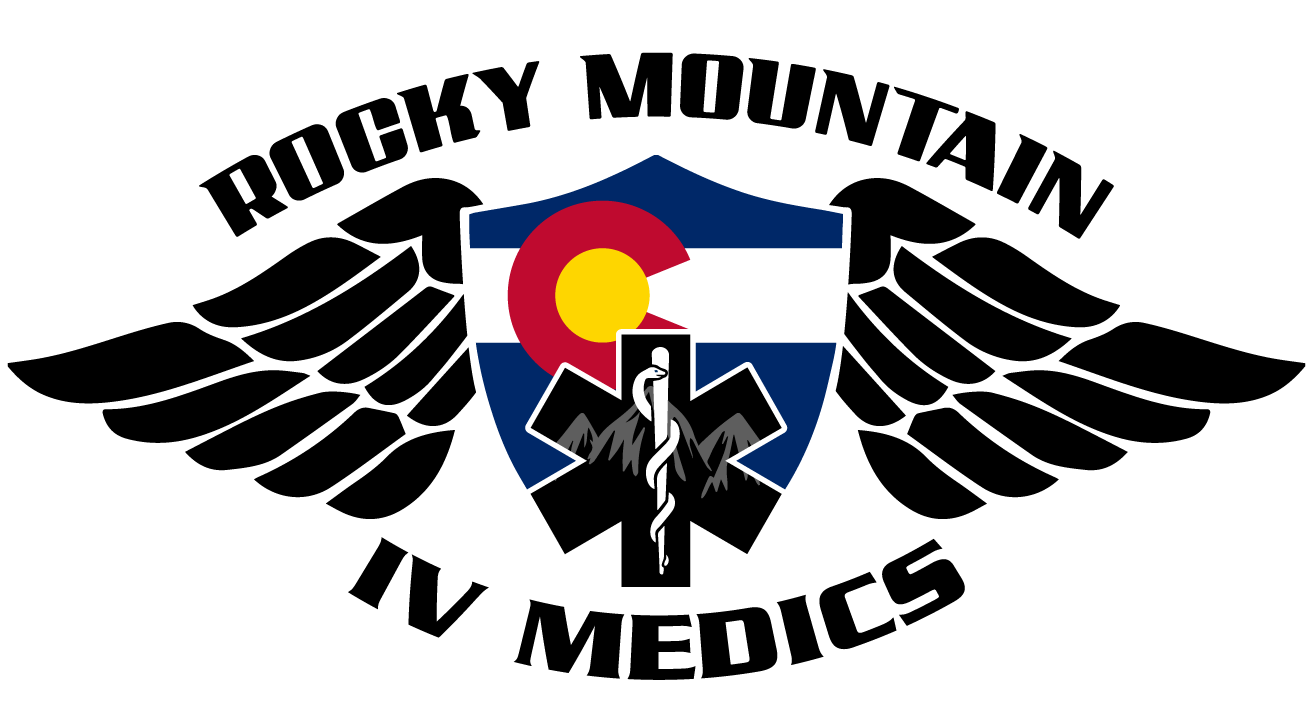Understanding the Lon-Term Effects of Chronic Dehydration

IV Therapy for Liver Disease: Supporting Liver Health
November 22, 2024
Sooth Eczema with IV Therapy: Exploring the Benefits
November 27, 2024Understanding the Lon-Term Effects of Chronic Dehydration

We've all experienced dehydration at some point in our lives. A telltale dry mouth and extreme thirst alert us that our body needs water. But there's an issue that affects a large part of the United States population: chronic dehydration. It may not seem urgent at first, but it can cause serious damage over time. Consistently failing to drink enough water can harm your organs, joints and immune system.
So, grab a glass of water, and let’s explore chronic dehydration and its long-term health effects.
What Exactly Is Chronic Dehydration?
Dehydration occurs when the body loses more fluids than it takes in. It becomes chronic when it persists over time, causing a gradual decline in health.
Did you know that the human body consists of around 55% to 65% water? Imagine your body as a waterpark. Without enough water, all the rides would come to a halt, and the park would close down. Similarly, when your body lacks hydration, your cells can’t function. Ongoing dehydration can lead to serious consequences if left unchecked.
Recognizing Chronic Dehydration Symptoms
If you’ve been feeling off lately, it might be due to chronic dehydration. Here are some signs to watch out for:
- Constipation: A lack of water can slow down your digestive system, making you feel backed up.
- Dry skin: If your skin feels flaky or rough, it could indicate that you need more hydration.
- Constant fatigue: Feeling tired all the time? That could be a result of not drinking enough water.
- Extreme thirst and dry mouth: Frequent thirst and a dry mouth means your body needs more fluids.
- Dark urine: If your urine is dark and you’re not going to the bathroom as often as usual, it’s time to hydrate!
- Frequent headaches and dizziness: Dehydration can cause headaches and feelings of lightheadedness.
- Muscle cramps: Ongoing muscle pain or weakness may be due to dehydration.
- Low blood pressure and high heart rate: These are serious signs that your body could be lacking fluid.
These general symptoms of dehydration become chronic if they continue for an extended time and cause your health to decline.
What Causes Chronic Dehydration?
Chronic dehydration doesn’t happen overnight. It’s usually the result of losing more fluids than you’re replacing. Several factors can contribute to this condition, including:
- Excessive sweating: Exercise or fever can cause you to lose fluids more than usual.
- Climate and altitude: Living in a hotter place or at a higher altitude can increase your fluid needs.
- Physically demanding jobs: Outdoor or intense physical work increases dehydration risk.
- Illnesses: Conditions that cause vomiting or diarrhea can lead to significant fluid loss.
- Frequent urination: You may urinate more often if you have diabetes or take diuretics.
- Digestive disorders: Conditions that affect the digestive system can lead to chronic dehydration. For example, inflammatory bowel disease or irritable bowel syndrome.
The Long-Term Effects of Dehydration
Chronic dehydration can have unwelcome long-term effects on the body.
Organ Function
Chronic dehydration can take a toll on various organs in your body. Here are a few key players:
- Kidneys: Think of your kidneys as hydration superheroes. They store water and help get rid of waste. Dehydration impairs kidney function, which may lead to kidney stones and UTIs. Insufficient water leads to a buildup of waste products in your blood.
- Brain: Dehydration reduces blood flow and oxygen to the brain. This restricted flow can cause headaches, dizziness and confusion. Severe dehydration also affects brain functions like visual awareness, focus and memory.
- Heart: A lack of fluids can cause your blood pressure to drop, making your heart work harder to pump blood. Over time, this can contribute to cardiovascular problems, including heart disease.
- Skin: Your skin needs hydration to stay elastic and youthful. Chronic dehydration can lead to dry, wrinkled skin and speed up the aging process.
- Digestive System: Dehydration slows down your digestive processes, leading to issues like constipation.
Joint Health
Staying hydrated is crucial for your joints as well. Here’s how dehydration affects them:
- Decreased lubrication: Proper hydration produces synovial fluid, which cushions and lubricates your joints. Dehydration can reduce this fluid, increasing friction and wear.
- Increased injury risk: Inadequate hydration can weaken joint cartilage. Fragility increases the risk of sprains and strains.
- Pain and stiffness: Dehydration can worsen joint pain issues, aggravating conditions like arthritis.
- Reduced flexibility: Less elasticity of tendons and ligaments from dehydration decreases flexibility.
Immune System
Your immune system relies on proper hydration:
- Decreased immune response: Your body needs water to produce infection-fighting lymphocytes and antibodies. Dehydration hinders this process.
- Increased infection susceptibility: A buildup of toxins makes you more vulnerable to getting sick.
- Inflammation: Poor hydration can increase inflammation, which further compromises your immune function.
- Slowed recovery: Compromised immune efficiency leads to slower recovery from injury or illness.
Energy Levels and Mood
Long-term dehydration can leave you feeling drained and moody:
- Fatigue: A lack of water can cause low energy since water is essential for energy production.
- Poor concentration: Dehydration can affect cognitive function. You might find it hard to focus and make decisions.
- Irritability: When dehydrated, you might experience anxiety, irritability and mood swings.
- Headaches: Chronic dehydration often triggers headaches, increasing discomfort and fatigue.
Treating Chronic Dehydration

The good news is that treating chronic dehydration is often as simple as drinking more water. The recommended daily water intake is about 9 cups for women and 13 cups for men. The amount of water you drink varies depending on your age, activity level and climate. It’s better to drink small amounts of water throughout the day rather than chugging a large amount at once.
You can also eat hydrating foods like leafy greens, cucumbers and watermelon. However, be cautious with caffeine and alcohol, as these can further dehydrate you.
IV therapy can be a game-changer for more severe cases of dehydration. Hospitals use drips for fast rehydration, and some healthcare providers offer in-home IVs.
Benefits of IV Therapy for Dehydration
Hydration IV therapy benefits those who experience chronic dehydration in many ways:
- Provides rapid rehydration: IV fluids go straight into your bloodstream, providing instant hydration.
- Restores electrolytes: When you're dehydrated, you lose vital electrolytes. These electrically charged minerals perform many functions, including balancing your body's fluids. IV acts as an electrolyte imbalance treatment to restore mineral levels.
- Assists nutrient absorption: Severe dehydration can prevent your body from absorbing nutrients. IV therapy ensures your cells get the essential nutrients they need.
- Relieves symptoms: IV treatments can help alleviate symptoms like headaches, dizziness, and fatigue.
- Supports the immune system: IV solutions contain vitamins and minerals that support your immune system.
Effective IV Therapy Options for Dehydration
Healthcare professionals can tailor IV treatments to meet individual needs. Here are some popular options:
- Myers' Cocktail: This blend contains powerful ingredients to combat dehydration and enhance well-being. B vitamins, vitamin C, zinc and other elements work together to boost energy and aid recovery.
- Purely Saline: This sterile saline solution provides pure hydration without any added extras.
- NAD+ IV: The nicotinamide adenine dinucleotide (NAD+) coenzyme helps convert food into energy and supports cellular functions. It can alleviate fatigue, improve brain function and even help repair damaged cells.
Who Can Benefit from IV Therapy?
Certain groups are more susceptible to chronic dehydration, including:
- Athletes: If you’re an athlete, your body loses fluids quickly through sweat. IV therapy can help you rehydrate and maintain peak performance.
- People with chronic illnesses: Conditions like diabetes can increase your risk of dehydration. IV therapy can be especially beneficial for managing these conditions.
- Frequent travelers: Air travel's low humidity and high altitudes dehydrate you. IV therapy can help regular travelers stay hydrated on the go.
- Outdoor workers: If you work outside, especially in hot weather, you risk dehydration. IV therapy can help you stay hydrated throughout the day.
Stay Hydrated With Rocky Mountain IV Medics
To support your hydration and health, consider IV therapy from Rocky Mountain IV Medics. Our experienced healthcare professionals offer personalized care in the comfort of your home.
Our tailored IV packages, including the popular Myers' Cocktail, relieve chronic dehydration symptoms. As a bonus, you enjoy improved immune function, more energy and a healthier body overall!
Are you based in Colorado and interested in learning more? Request an appointment online. Your body will thank you!


